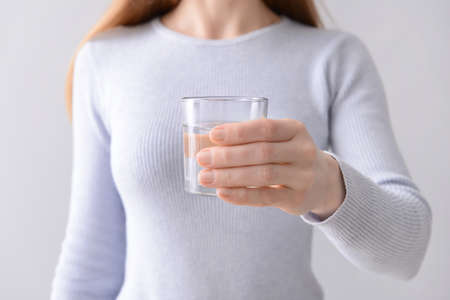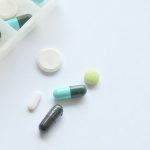1. Understanding Skin Hydration
When we talk about glowing, healthy skin, hydration plays a huge role. Your skin is your body’s largest organ, and just like any other organ, it needs water to function properly. But what exactly does hydration do for your skin? Let’s break it down in a simple way.
How Water Affects Your Skin
Water helps maintain your skin’s elasticity, texture, and overall appearance. When your body is well-hydrated, your skin tends to look plumper, smoother, and more vibrant. On the flip side, dehydration can make your skin appear dull, flaky, and even lead to fine lines looking more pronounced.
Hydration and Skin Function
Your skin has a natural barrier called the stratum corneum that protects against external damage. This barrier relies on moisture to stay strong and effective. Without enough hydration, this layer can weaken, making your skin more sensitive and prone to irritation.
The Visible Effects of Hydration on Skin
Below is a simple comparison of hydrated vs. dehydrated skin:
| Hydrated Skin | Dehydrated Skin |
|---|---|
| Smooth texture | Rough or uneven texture |
| Healthy glow | Dull or tired appearance |
| Bouncy and elastic feel | Tight or flaky feeling |
| Lesser visibility of fine lines | More visible fine lines and wrinkles |
The Role of Internal vs. External Hydration
Your skin gets hydration from both inside and outside sources. Drinking enough water daily supports internal hydration, while skincare products like moisturizers help lock in that moisture externally. Both are essential for keeping your skin in top shape.
Quick Tip:
If you’re unsure whether your skin is dehydrated, gently pinch your cheek. If it feels slow to bounce back or looks crepey, it might be asking for more hydration!
This foundational understanding sets the stage for exploring how lifestyle habits and skincare routines impact your hydration levels in upcoming sections.
2. The Science Behind Hydration and Skin Barrier Function
Your skin barrier is like a protective shield, keeping moisture in and harmful elements out. When it’s functioning well, your skin feels soft, smooth, and resilient. But when it’s compromised—due to dehydration, environmental stressors, or harsh skincare—it can lead to dryness, irritation, and even premature aging.
What Is the Skin Barrier?
The skin barrier, also known as the stratum corneum, is the outermost layer of your skin. It’s made up of tightly packed skin cells held together by lipids (fats), creating a brick-and-mortar-like structure. This layer plays a vital role in maintaining hydration and protecting against external irritants such as pollutants and bacteria.
How Water Supports the Skin Barrier
Hydration is essential for keeping the skin barrier intact. When your skin has enough water:
- It maintains elasticity and plumpness
- It reduces the appearance of fine lines
- It prevents cracking or flaking
- It helps regulate oil production
What Happens When Your Skin Lacks Water?
Without proper hydration, your skin barrier weakens. This makes it easier for irritants to penetrate and moisture to escape. Here’s a simple comparison:
| Hydrated Skin Barrier | Dehydrated Skin Barrier |
|---|---|
| Smooth texture | Rough or flaky texture |
| Even tone and glow | Dull or uneven appearance |
| Resilient against irritants | Sensitive and reactive |
| Minimized fine lines | More visible wrinkles |
The Role of Internal vs. External Hydration
Your body hydrates your skin from the inside out by delivering water through blood circulation. Drinking enough water daily supports this process. However, external hydration—like using moisturizers with humectants (such as hyaluronic acid or glycerin)—helps trap that moisture on the surface where it’s needed most.
Pro Tip:
Look for skincare products labeled “hydrating” rather than just “moisturizing.” Hydrating products add water to your skin, while moisturizing ones help lock it in.
Summary Table: Key Factors That Support a Healthy Skin Barrier
| Factor | Description |
|---|---|
| Adequate Water Intake | Keeps cells hydrated from within and supports nutrient delivery to skin tissue. |
| Gentle Cleansing Routine | Avoids stripping natural oils that help seal in moisture. |
| Use of Humectants | Attracts water into the top layers of the skin. |
| Ceramide-Rich Moisturizers | Helps restore lipid structure in the skin barrier. |
Understanding how water interacts with your skin barrier empowers you to make better choices—from drinking more fluids to selecting the right products—that support long-term skin health and resilience.

3. Dehydration vs. Dry Skin: Key Differences
When it comes to keeping your skin healthy, understanding the difference between dehydrated skin and dry skin is essential. While these two conditions may sound similar—and even feel alike—they have different causes, symptoms, and treatments. Let’s break it down in a simple way so you can give your skin exactly what it needs.
What’s the Difference?
Dehydrated skin lacks water. It’s a temporary condition that anyone can experience, regardless of skin type—even oily skin can be dehydrated. On the other hand, dry skin lacks oil (sebum). This is a skin type that is often genetic and more permanent in nature.
Common Symptoms
| Dehydrated Skin | Dry Skin |
|---|---|
| Dull appearance | Flaky or rough texture |
| Tight feeling, especially after cleansing | Irritation or itchiness |
| Fine lines look more noticeable (especially from dehydration) | Lack of natural oils or shine |
| Can feel oily and dry at the same time | Sensitive to weather changes and skincare products |
Main Causes
What Causes Dehydrated Skin?
- Lack of water intake
- Caffeine or alcohol consumption
- Aggressive skincare products (like over-exfoliating)
- Environmental factors like dry air or sun exposure
What Causes Dry Skin?
- Your genetics (some people are just born with less oil production)
- Aging (oil production slows with age)
- Certain medications or medical conditions like eczema
Treatment Approaches
| Treating Dehydrated Skin | Treating Dry Skin |
|---|---|
| Add more water to your daily routine—both drinking and topically through hydrating serums or masks with ingredients like hyaluronic acid. | Add nourishing oils and emollients to your routine—look for moisturizers with ingredients like ceramides, squalane, or shea butter. |
| Avoid harsh cleansers; use gentle, hydrating formulas instead. | Avoid long hot showers that strip away natural oils. |
The Bottom Line on Hydration Science
Your skin’s hydration level plays a big role in how it looks and feels. By knowing whether you’re dealing with dryness or dehydration, you can choose the right products and habits to support healthier, glowing skin. Stay tuned for more tips on how hydration science affects your overall skin health in upcoming sections.
4. How Diet and Lifestyle Affect Skin Hydration
When it comes to keeping your skin hydrated and glowing, water isnt the only factor at play. What you eat, how you live, and even where you live can make a big difference in how your skin looks and feels. Let’s break down how diet and lifestyle impact your skin’s moisture levels.
Hydration Starts From Within
Drinking enough water each day is one of the simplest ways to support healthy skin. Water helps flush out toxins and keeps your cells functioning properly, including the ones that make up your skin.
How Much Water Should You Drink?
| Age Group | Recommended Daily Water Intake |
|---|---|
| Adults (Women) | About 9 cups (2.2 liters) |
| Adults (Men) | About 13 cups (3 liters) |
| Active Individuals | More depending on activity level |
The Role of Diet in Skin Hydration
Your diet plays a key role in maintaining your skin’s moisture barrier. Certain foods are rich in water content and essential nutrients that help keep your skin soft, smooth, and hydrated.
Skin-Friendly Hydrating Foods
| Food | Nutrient Benefit |
|---|---|
| Cucumbers | High water content + silica for skin elasticity |
| Avocados | Rich in healthy fats to support skin barrier |
| Berries | Packed with antioxidants to fight free radicals |
| Fatty Fish (like salmon) | Omega-3s help maintain skin moisture levels |
Lifestyle Factors That Influence Skin Hydration
Sleep Matters
Lack of sleep can lead to increased stress hormones, which may dry out your skin. Aim for 7–9 hours of quality sleep each night to help your skin repair and retain moisture.
Environmental Conditions
The climate you live in also affects your skin’s hydration. Dry air, whether from cold winters or air conditioning, can strip moisture from your skin. Using a humidifier at home can help combat this effect.
Alcohol and Caffeine Intake
Both alcohol and caffeine can have a diuretic effect—meaning they increase fluid loss—which may leave your skin feeling dehydrated. Try to balance these with extra water intake or opt for hydrating alternatives like herbal teas.
Quick Tip:
If you notice tightness, flakiness, or dullness in your skin, it might be time to evaluate not just what you’re putting on your face but also what you’re putting into your body—and how youre living day-to-day.
A combination of proper hydration, balanced nutrition, and mindful lifestyle habits is key to maintaining healthy, glowing skin from the inside out.
5. Top Skincare Ingredients for Hydration
When it comes to keeping your skin healthy and glowing, hydration is key. While drinking enough water is important, what you put on your skin also plays a huge role. Some skincare ingredients are especially effective at attracting and locking in moisture. Let’s take a closer look at some of the top hydrating ingredients recommended by dermatologists and skincare experts.
Hyaluronic Acid
Hyaluronic acid is a superstar in the world of hydration. It’s a naturally occurring substance in our skin that can hold up to 1,000 times its weight in water. This makes it incredibly effective at plumping the skin and reducing the appearance of fine lines caused by dryness. It works best when applied to damp skin and followed by a moisturizer to seal in the hydration.
Glycerin
Glycerin is another powerful humectant, which means it draws moisture from the air into your skin. It helps maintain the skin’s moisture barrier and keeps it soft and smooth. Glycerin is commonly found in cleansers, serums, and moisturizers because its gentle and suitable for all skin types—even sensitive or acne-prone skin.
Ceramides
Ceramides are lipids (fats) that make up over 50% of the skin’s natural barrier. They play a crucial role in preventing moisture loss and protecting against environmental damage. When your ceramide levels drop—due to aging or harsh skincare products—your skin may feel dry, irritated, or more sensitive. Using products with ceramides helps restore this barrier and lock in hydration.
Quick Comparison of Key Hydrating Ingredients
| Ingredient | Main Function | Best For | How It Works |
|---|---|---|---|
| Hyaluronic Acid | Binds water to skin cells | Dull, dehydrated, aging skin | Attracts moisture and plumps the skin surface |
| Glycerin | Moisure retention from the air | Sensitive or acne-prone skin | Mimics skins natural moisturizing factors |
| Ceramides | Strengthens skin barrier | Dried out or damaged skin barrier | Lipid molecules fill gaps between skin cells to prevent water loss |
The Bottom Line on Hydrating Ingredients
If you’re looking to boost your skin’s hydration levels, incorporating products with hyaluronic acid, glycerin, or ceramides can make a noticeable difference. These ingredients help your skin stay moisturized longer, improve texture, and support overall barrier health—all essential for maintaining radiant, healthy-looking skin.


